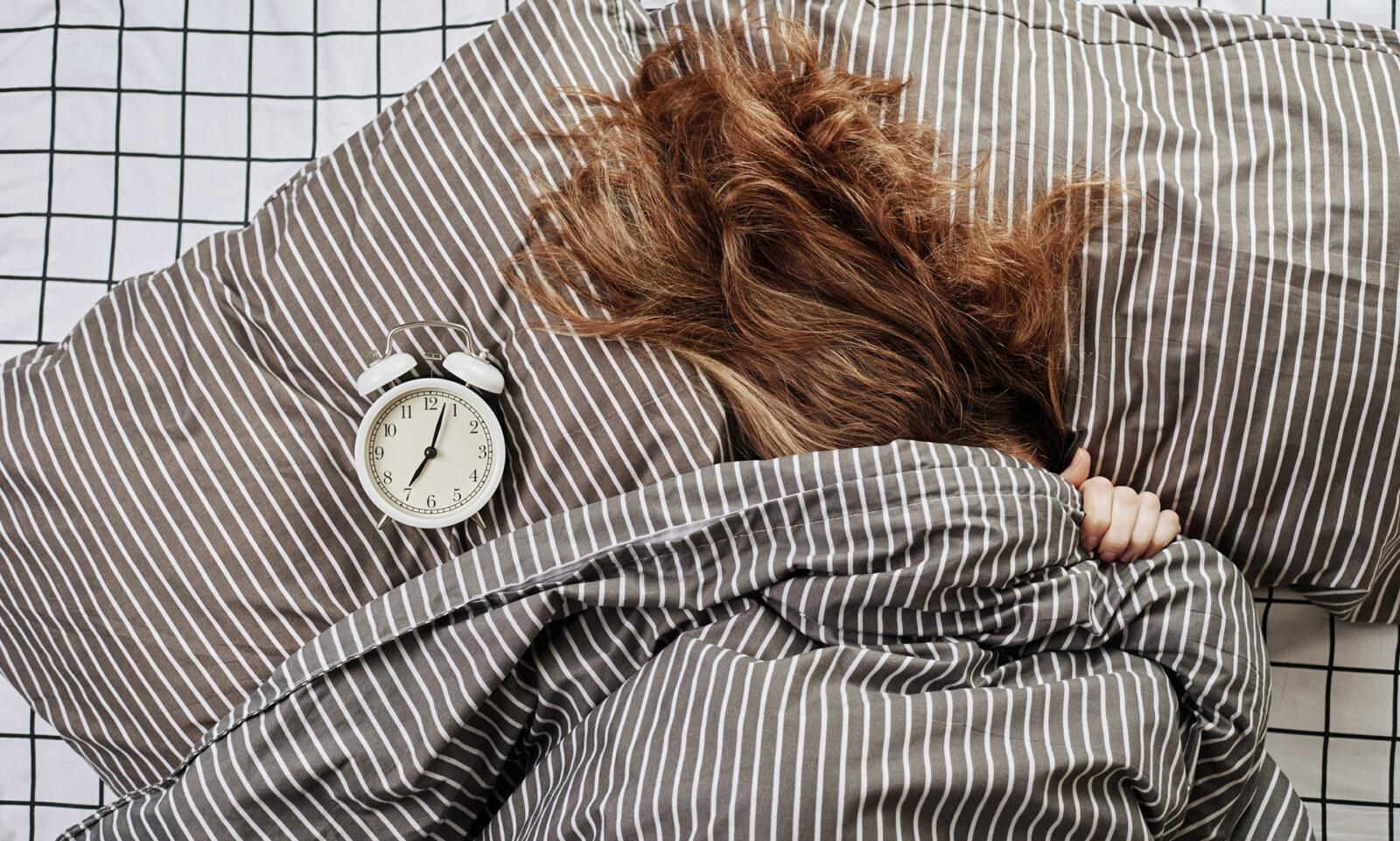A bad relationship can be a major cause of depression. But when you're in a deep depression, it can be hard to tell if your relationship is to blame. When we start a relationship, we may have all sorts of dreams and fantasies about how it's going to be and how we'll feel about it.
We can imagine how it makes us happy and provides a sense of security. We can imagine that it will become the center of our lives, above all else. Very few of us imagine that a budding relationship could one day become a source of sadness or depression. This feeling can be a very lonely and anxious experience. At that moment, you may feel that what the relationship offers is the opposite of what you expected: instead of providing support, it is a burden.
What is depression?
Why does depression occur?
How do you know if your relationship is making you depressed?
Summary
What is depression?
Lundbeck Estonia writes on its website that: “Depression is a serious illness that is accompanied by symptoms such as sadness, inability to feel joy and pleasure, loss of energy, difficulty concentrating, and suicidal thoughts.”
So depression is not just sadness. Depression affects people in different ways, but it is more than just a temporary low mood.
Due to chemical changes in the brain, depressed patients experience long-lasting sadness and anxiety, unexplained pain, poor sleep quality and/or a lack of interest and energy. Symptoms of depression can last for weeks, months, or years.
In the most serious cases, depression can lead to suicidal thoughts and self-harm. You can also find more information about depression main.ee from the page.
Depression occurs worldwide in all age groups and among people of all social backgrounds, both men and women. Depression usually first appears between the ages of 20 and 25. Estimates of the prevalence of depression vary widely, but in most countries, between 8 and 121% of people experience depression during their lifetime.
World Health Organization has classified depression as one of the world's most disabling diseases - major depression causes the same level of disability as terminal cancer. Depression is the disease with the highest burden of disease in middle- and high-income countries.
One study found that up to 651% of people with depression consider the illness to be a serious disability. Despite this, many people with depression do not receive any treatment.
Even the symptoms of severe depression can go unnoticed by an outside observer. “Smiling depression” is not an official term for psychologists, but there is increasing awareness of this condition. In “smiling depression,” a person appears cheerful to others, even though deep down they are suffering from symptoms of depression.
Why does depression occur?
The causes of depression can be very different. Possible causes of depression:
- psychological or emotional causes (long-term stress, psychotrauma)
- Sad events and accidents in the past (loss of loved ones, physical and sexual violence)
- changes in the chemical balance of the brain (as a side effect of medications, as a result of constant alcohol or drug use, in cases of illness, hormonal changes, lack of daylight)
- personal loss (prolonged grief)
- environment (winter depression, loneliness)
- disease and medications (chronic diseases)
- heredity
- hormonal changes in women (pregnancy, childbirth, menopause), which can be accompanied by both pregnancy and postpartum depression
- personality (excessive emotional sensitivity, negative thinking, passive behavior, excessive perfectionism)
A close relationship can also be a major source of depression. For example, something in another person's behavior or words can rekindle years of trauma that is completely unrelated to that person. A close relationship can also cause long-term stress, which can lead to the development of depression. For example, the need to constantly care for someone, fighting, intimate partner violence, etc. If the possible cause of depression is ignored and unresolved, the emotional and physical signs and symptoms of depression can persist for a long time.

How do you know if your relationship is making you depressed?
So what are the signs in a close relationship that indicate the likelihood that the relationship may be to blame for your depression?
Depression is a very serious illness and it is definitely worth seeking professional help if you experience symptoms of depression. Also Healthy Life Center offers both individual and couples therapy. So if you feel unhappy in your relationship, you should consult a psychologist.
There is a fee for seeing a psychologist and the waiting list can be several months long. So what can you do yourself? The first thing to do is to assess whether there is reason to suspect depression. There are several options for this. One possible self-assessment questionnaire is on the peaasi.ee website.
If you've assessed your level of happiness and found enough reason to worry, it's also worth reviewing your close relationships.
- Does your spouse treat you with kindness and respect? If your spouse criticizes or belittles you frequently, you may suffer from feelings of inferiority and depression. In a healthy relationship, both partners encourage and respect each other. For example, if your spouse makes fun of your work and doesn't discuss decisions that affect both of you, you are more likely to become depressed in your relationship.
- Think about it, you can also remain yourself next to your spouse. Ask yourself, does your partner love and appreciate you for who you are, or do you have to pretend to be someone else around them? A relationship that robs you of your identity can be a cause of depression.
If your spouse expects you to watch the same shows, listen to the same music, and share the same opinions as them, it's time to evaluate whether this relationship is still good for you. - How often do you do something new with your spouse? Do you and your spouse regularly go to new places, try new things, and have new experiences together? A stagnant relationship that lacks growth can make you unhappy. One sign of a stagnant relationship is that you have nothing to talk about anymore.
- Look to the future. Compare your goals with your partner's and see if they are in line with each other. If they are not in line or if you are unable to discuss future plans together at all, there is a high chance that this relationship will make you unhappy.
For example, if you want to have children but your partner doesn't want to, or if you want to get married but your partner doesn't want to, you are at risk of becoming depressed. - Control your sex drive. Think back a few months and assess whether you or your partner's interest in sex has decreased. A decreased desire for sex is a symptom of depression and can have a major impact on your relationship. Some medications for depression can also reduce your desire for sex.
- Talk to your spouse about your doubts and hesitations. If you're worried about some aspect of your relationship, bring it up with your partner. Talk about your feelings and ask if they're willing to help you work through it. An honest conversation can either reassure you or, conversely, make it clear that you need to seek professional help.
Avoid blaming or otherwise getting defensive. Remember that he may not see the problem the same way you do or recognize that you are unhappy.
Be constructive. Focus on finding a solution together, instead of throwing all sorts of relationship problems at your partner. - Watch for signs of an unhealthy relationship. If your relationship shows signs of codependency and/or abuse, it can make you depressed without you even realizing it. It is important to recognize codependency and abuse in a relationship.
-
- Codependency is basically a one-sided relationship, where one partner constantly gives at the expense of themselves in order to satisfy the other.
- Abuse in a relationship doesn't just have to be physical. Emotional abuse is also abuse. Signs include one spouse constantly criticizing or belittling the other. Not respecting privacy, being jealous, or constantly snooping.
- If you notice signs of codependency or abuse in a relationship, be sure to consult a psychologist immediately.
- If you are in an abusive relationship and fear for your safety, seek help immediately. For more information, visit the Victim Support page. help.ee.
- Make time for couples therapyIf you and your spouse are both ready to work through your problems together, attend couples therapy together. A psychologist can help you work through your problems together.
- Know when it's time to end a relationship. If you are in an unhealthy relationship and there are no signs of improvement, it may be time to end it.
Ending a relationship, either permanently or temporarily, is a very extreme solution. Unless it is an abusive relationship, such a decision should not be made until after couples counseling. In order to make a decision about the future of the relationship, you should go to couples therapy at least 6-8 times. Couples therapy is usually once a month, so this would mean 6-8 months of effort to resolve the problems.
If you find that the relationship is not the source of your depression but you are still sad or anxious, it is worth exploring other possible causes of depression.
- Talk to your husband about his moods. Moods are contagious, and if he's depressed, it will affect your feelings too.
- Look for other sources of stress in your life. Any source of stress can lead to depression. This could be the death of a loved one, a major change such as moving, a chronic illness, the birth of a child, or a personality disorder, among others.
- Think about your family history. Maybe the cause of your depression is genetic.
- Do your moods follow a certain pattern? If your moods regularly fluctuate up and down, you may have seasonal depression or bipolar disorder.
- Go to a psychologist. A psychologist can help you understand what's causing your depression.
Summary
A close relationship can be a cause of depression in many ways. First, assess whether you have any signs of depression at all. There are several depression tests available online for self-assessment. In Estonia, depression tests are conducted by family doctors, who, if necessary, prescribe the necessary treatment or refer you to a psychologist.
If you are experiencing symptoms of depression and suspect that the cause may be in a close relationship, ask yourself how your spouse treats you? Can you be yourself around your spouse? How often do you do something new together? Can you talk about the future together and are your plans for the future compatible? How is your sex life? Are there any signs of codependency or abuse?
If necessary, seek help from a qualified psychologist. If you are both willing to work on your relationship, it would be best to find a good couples therapist.

Allan Randlepp
NutritionistAllan is a nutritionist and trainer whose favorite topics are lifestyle and longevity, including nutrition and physical activity.
Respiratory care





